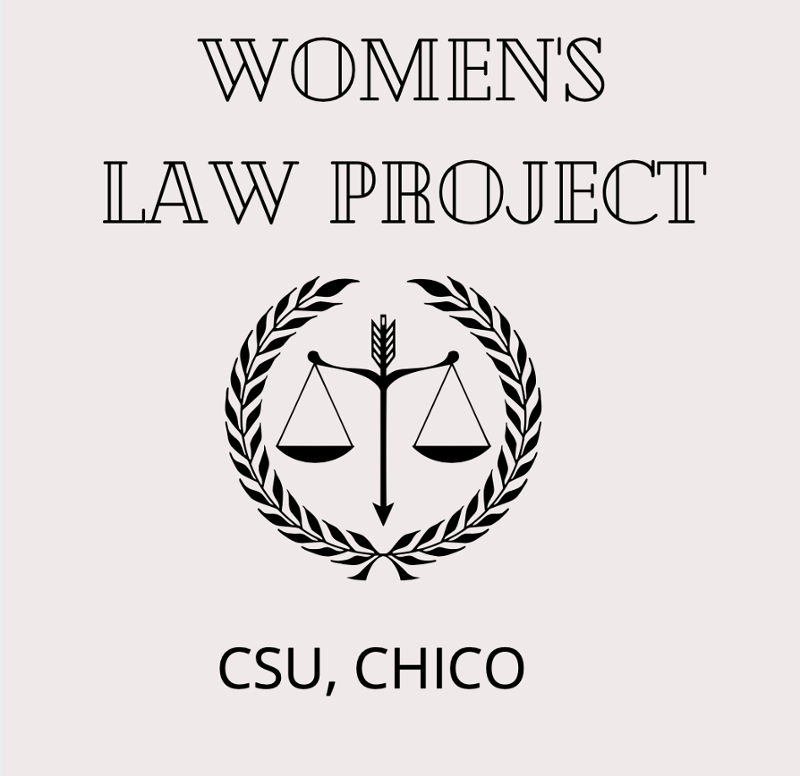We provide legal information not legal advice. We support and assist women, men, children, and seniors who are or have been survivors of domestic violence or harassment. As paralegal interns, we are available to supply information about obtaining protective orders pertaining to domestic violence, harassment, and elder or dependent adult abuse.
Paralegal Interns of the Women’s Law Project collaborate with local county and state agencies including: SHARP, Catalyst, Victim Witness and Safe at Home. When appropriate, CLIC’s paralegal interns will make referrals to these agencies to assist survivors dealing with the impacts of domestic violence.
1. Q: Where do I find documents to file for a restraining order?A: There are four types of restraining order packets. You can access the forms for each one by clicking below on the one you want to file. General information about temporary restraining orders can be found in CAL. CIV. PROC. CODE § 513.010.
- Domestic Violence
- Civil Harassment
- Elder or Adult Abuse
The forms for the restraining order packets listed here are available either through the Judicial Council of California website or from the Self-Help Assistance and Referral Program in Butte County, known as SHARP. SHARP is located in the Superior Court of CA, County of Butte, North Courthouse in Chico, and is available M-F 8:30-4PM by phone at (530) 532-7015.
2. Q: Are there any services available to help me complete the restraining order forms?
A: The Community Legal Information Clinic (CLIC) staffs paralegal interns, NOT attorneys, who can assist in helping you complete court forms. Contact the CLIC office at (530) 898-4354 to schedule a meeting with a paralegal intern.
3. Q: The Judicial Council of California, states that there are 3 key steps to take if someone is not abiding by a restraining order.
A: Those steps include:
- Calling the police;
- Gathering proof of the violation of the restraining order;
- Get copies of your order and give key people a copy.
For additional information on Enforcing a Restraining Order you can visit the Judicial Council website or contact an attorney.
4. Q: Do I have to pay the filing fees when I file a protective order?
A: There is no filing fee for an application, a responsive pleading, or an order to show cause that seeks to obtain, modify, or enforce a protective order. CAL. FAM. CODE § 6222. Additional information about Fee Waivers is available here.
5. Q: What if my primary language is not English?
A: If your primary language is not English, an interpreter MAY be provided to you at no cost for certain types of court proceedings and court-operated services and programs. Prior to your hearing or court proceeding, check with the court’s Self-Help services, the Court Clerk or look at the court’s website to see what types of translation services are available in your jurisdiction. The Judicial Council of California provides additional details about court interpreters. The Butte County Superior Court clerk’s office is available at (530) 532-7002.
6. Q: I would like to file for a restraining order, but the opposing party does not know my address and I do not want them to find out. What can I do?
A:Safe at Homeis a program run by the California Secretary of State and provides a secure address for all court documents, banking or otherwise so that private information stays confidential. This program is available to victims of domestic violence, sexual assault or stalking. To find an enrolling agency in your county please visit this link with specific regional agencies listed by county.
7. Q: What if I do not have a green card? Can I still file for a restraining order?
A: Noncitizens may file for restraining orders. The CSU, Chico Dream Center, (530) 898-5818, collaborates with the Coalition for Humane Immigration Rights to provide free immigration legal services to CSU, Chico students, staff and faculty, and their immediate families. North Valley Catholic Social Services also provides immigration legal services and can be reach at (530) 241-0552.
8. Q: What will happen at the court hearing?
A: At the hearing, the judge decides the outcome of a domestic violence, civil harassment and/or elder or adult abuse case. For assistance preparing for a court hearing, click this link to SHARP; SHARP is the Self-Help Assistance and Referral Program, and can provide you with details how to prepare for in-person hearings and remote hearings.
9. Q: I have a restraining order against me, do I have to sell or store my gun?
A: It depends. Call your local agency to discuss their procedures for turning in guns through the restraining order process. This link (PDF) will take you the court form FW-800, which provides information regarding handling and turning in gun related items.
10. Q: What is CLETS?
A: California Law Enforcement Telecommunications System (CLETS) is a statewide computer network that provides a variety of services including alerting police of the existence of a restraining order. This includes details regarding the protected person, the person retrained, and the terms of the restraining order. If a protected person has filed a restraining order, it is important to also complete the CLETS form here (PDF) so that Law Enforcement statewide are aware of the restraining order. This allows you to be mobile and still feel safe. For a more detailed description of CLETS, you can review this Policies, Practices and Procedures document (PDF).
For more information regarding CLETS and the aspects of its legal function, please see CAL. GOV’T. CODE §§15150-1567 by clicking this link .

